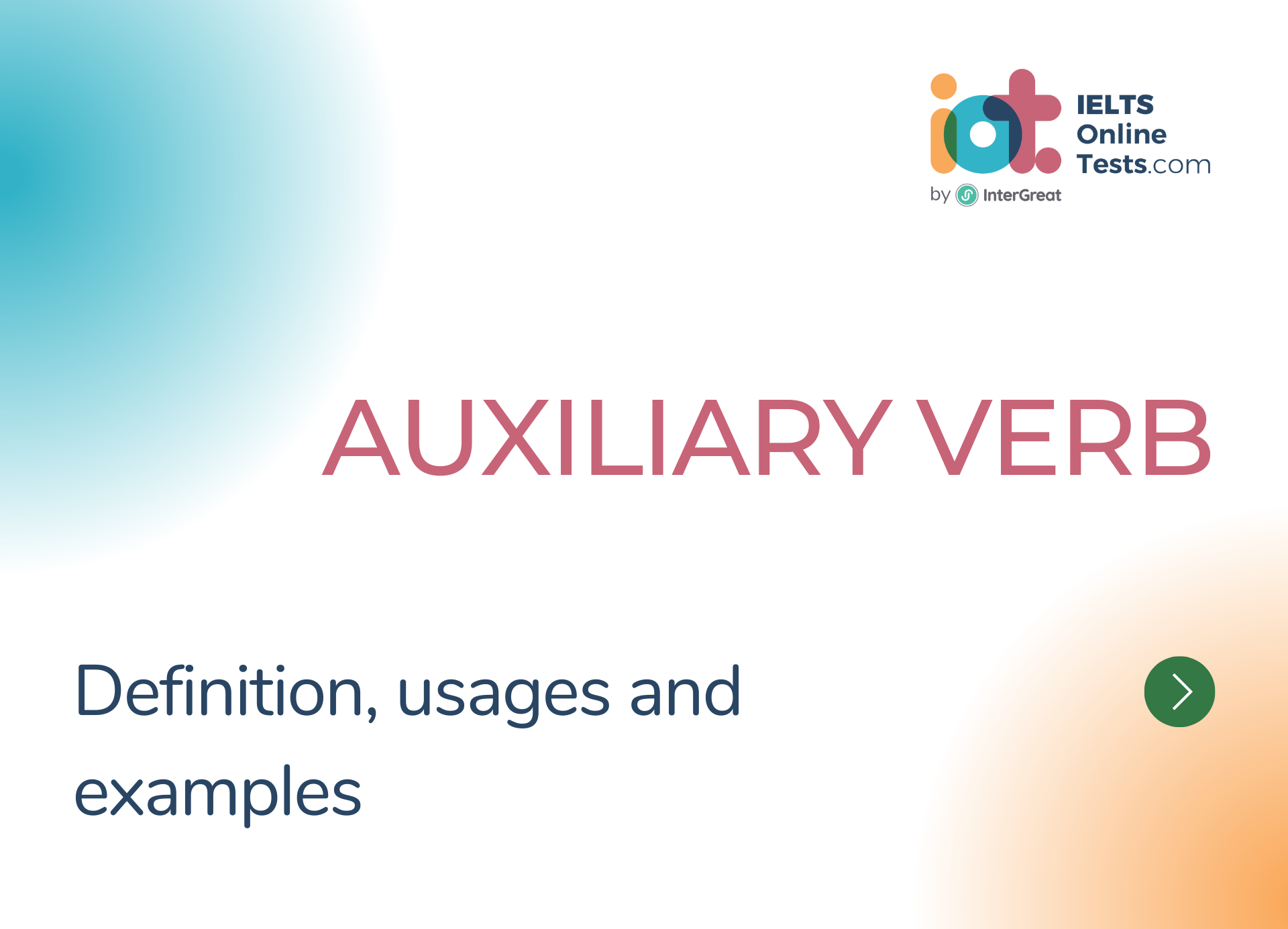
Auxiliary verb definition and examples
Auxiliary verbs, also known as helping verbs, are verbs used in conjunction with main verbs to express grammatical functions such as tense, mood, voice, aspect, and more. They assist the main verb in providing additional information about the action or state of the subject.
Here's a detailed explanation of auxiliary verbs with examples:
Auxiliary Verbs:
- Auxiliary verbs, or helping verbs, work together with main verbs to create various verb forms and convey additional meaning.
- Examples:
- be, have, do, will, shall, can, could, may, might, must, should, would.
- Be: Used to form continuous tenses and passive voice.
- "She is studying for her exams." (continuous tense)
- "The book was written by him." (passive voice)
- Have: Used to form perfect tenses.
- "I have finished my work." (present perfect tense)
- "They had already left when I arrived." (past perfect tense)
- Do: Used to form questions and negative sentences in the present simple and past simple.
- "Do you like ice cream?" (question)
- "I do not understand the instructions." (negative sentence)
- Be: Used to form continuous tenses and passive voice.
- Can, could, may, might, must, shall, should, will, would:
- Modal verbs express ability, possibility, necessity, permission, obligation, and more.
- "She can play the piano beautifully."
- "You must finish your homework before going out."
- "They should study for the test."
Examples of Auxiliary Verbs in Different Verb Forms:
- Progressive (continuous) forms:
- "He is running in the park."
- "We were watching a movie."
- Perfect forms:
- "She has written a letter."
- "They will have arrived by then."
- Modal forms:
- "You should study for the exam."
- "He can speak multiple languages."
- Progressive (continuous) forms:
Auxiliary verbs play a crucial role in constructing sentences with different verb forms and expressing various aspects of the action or state. They provide important grammatical functions to convey tense, mood, voice, and more. Understanding auxiliary verbs helps in forming correct sentence structures and conveying precise meanings in English.




